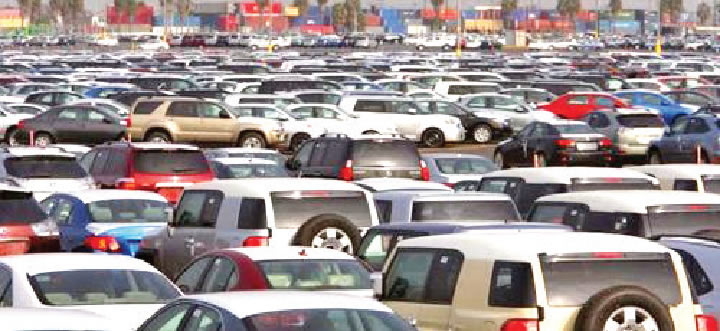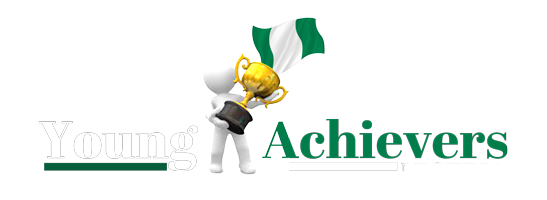The recent 40 per cent hike in the exchange rate for cargo clearance at the seaports and the increase in tariff on imported cars by a terminal operator, Ports & Terminal Multipurpose Limited, has led to about 70 per cent drop in the sale of second-hand imported cars.
The PUNCH reported last week that the Central Bank of Nigeria and the Nigeria Customs Service had taken the ongoing foreign exchange reforms to the maritime sector with a 40 per cent increase in the exchange rate used for calculating the import duty.
The NCS had a few weeks ago raised the exchange rate used for the calculation of import duty from N422.30/dollar to N589/dollar.
The development, which has led to a corresponding 40 per cent increase in import duties on imported cargoes, including vehicles, has caused anxiety among operators in the maritime sector with clearing agents, freight forwarders and importers calling for an immediate reversal of the policy.
As that was gradually sinking in, the CBN on Thursday raised the exchange rate for cargo clearance by 31 per cent. The interest rate was moved from N589/$ to N770/$.
The NCS announced this development in a circular dated July 4, 2023, titled, ‘Implementation of the floating foreign exchange rate regime’ and was signed by the Assistant Controller General, IT & Modernisation, K. I. Adeola.
The circular read in part, “The CBN has instituted the floating exchange rate regime, which has given rise to incessant changes in the exchange rate for trade. The policy is to be implemented by all ministries, departments and agencies of the government, including the NCS.”
The service through the circular directed its area controllers to ensure that the information was communicated to relevant stakeholders.
Confirming the development, the Youth Leader of the Association of Nigerian Licensed Customs Agents, Tin Can Island chapter, Remilekun Sikiru, said the directive was communicated to members of the group in the early hours of Thursday.
Sikiru, who is also the Chief Executive Officer of Sikremstar Logistics Limited, explained that a 2004 Toyota Camry that was cleared for N1m before the introduction of the Vehicle Identification Number for clearing of imported vehicles was now being cleared for N1.9m.
Giving details of the new rate for clearing vehicles from 2001 to 2014, Sikiru said, “The actual duty on Toyota Camry is N705,000, while the total duty and clearance cost is N1.7m; for Corolla, the duty is N558,000 and total clearance cost is N1.3m; Sienna duty is N930,000 and total clearance cost is N2.2m; duty on Highlander is N1.1m, bringing the total clearance cost to N2.6m; duty on Venza is N1.2m and total cost is N3m.
“For Lexus RX350, the duty is now N1.5m, bringing the total clearance cost to N3m; duty on Lexus ES350 is N1.3m and the total cost is N3m; for Toyota RAV4, the duty is N831,000 and total cost of clearing it is N1.2m; Honda Pilot’s duty is N966,000 and the total clearance cost is N2.2m; Honda Accord’s duty amounts to N769,000 and total clearance cost is N1.8m; for Toyota Tacoma, the duty is N417,000 and total clearance cost is N818,000. These vehicles are from 2001 to 2014.”
Total duty or total clearance cost means the duty payable on a car plus the surcharge, ECOWAS duty and the seven per cent port development levy.
The development came barely one month after the Federal Government removed the fuel subsidy and floated the naira. It also came at a time electricity distribution firms were considering increasing power tariffs.
The National Public Relations Officer, NCS, Abdullahi Maiwada, who confirmed the new exchange rate on the agency’s portal, said it was only implementing the CBN policy.
“Whatever you see in our system is what has been communicated to us. It is determined by the Central Bank of Nigeria. So whatever we are using is what is obtainable as communicated to us. It is a monetary policy; we only implement what is given to us. It is a monetary policy and anything monetary is not determined by us, it is determined by the CBN. We only use what is communicated to us,” Maiwada stated.
Sikiru had earlier said the new rate had taken effect on the Customs portal and that the customs duty payable on vehicles had increased astronomically.
According to him, this development may lead to cargoes, including vehicles, being trapped at the terminals.
“The customs duty has been increased and it will lead to a heavy increment in duty payment on general goods and cargoes. This will bring hardship on importers,” Sikiru added.
Also speaking, a freight forwarder and Chief Executive Officer, 2B Frank Nigeria Limited, Nwegbe Frankypaul, said, “Freight forwarders woke up on Saturday to realise that the dollar rate had been increased from about N423 per dollar to about N590 per dollar.”
Nwegbe pleaded with President Bola Tinubu to ensure the depreciation of the value of older vehicles.
The Founder of the National Council of Managing Directors of Licensed Customs Agents, Mr Lucky Amiwero, said, “The moment you allow the naira to float freely in terms of exchange that is what you get. And it is going to affect the prices of goods. It is going to take a lot of licensed customs agents out of work because most of them are going to lose their customers.”
The Vice-President of the National Association of Government Approved Freight Forwarders, Nnadi Ugochukwu, said, “It will affect businesses; there is a container I have for someone, before now, we used to clear that container for N4.3m. With the new exchange rate, the clearing cost is now N6.5m.”
A licensed Customs agent, Mr Festus Ukwu, said, “Even if the Federal Government wants to do exchange rate harmonisation, they should know how to go about it. This increase is a very big one.”
However, while the agents were still lamenting the increased exchange rate, the PTML slammed a 36 per cent tariff on imported used cars.
This development coming from a terminal operator that specialises mostly in the importation of cars worsened the woes of vehicle importers and sellers.
In a public notice sighted by our correspondent, the terminal operator said the current economic conditions of surging inflation, coupled with the devaluation of the currency and removal of subsidy on petrol had caused its operational cost to increase.
The terminal operator in the notice said its action had received the endorsement of relevant authorities.











